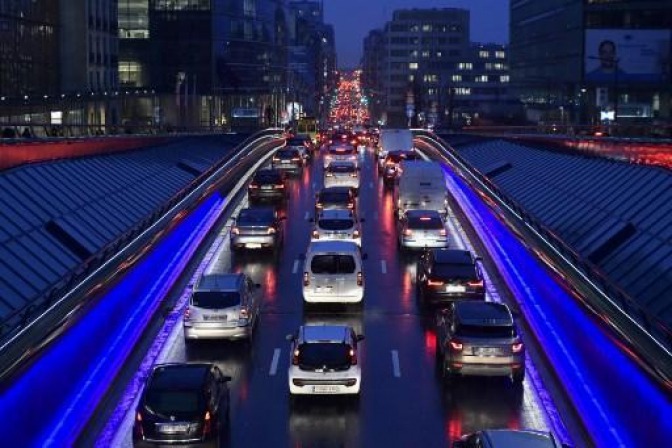Management consultants, Deloitte, on Thursday revealed the Brussels results of its new Global City Mobility Index, a global indicator of urban mobility. The Index compares 18 cities based upon various criteria, such as air quality, the extent of public transport networks and strategies for the future. It emerges from this analysis that only 6% of journeys in Brussels are on foot or by bicycle. On average a Brussels resident will waste more than a working week (a total of 41 hours) per year stuck in traffic jams.
The Global City Mobility Index report states that despite the well-developed public transport network in Brussels, insufficient municipal transport in some areas of the city, particularly within the Brussels Periphery, leads to increased car use, greater traffic congestion on the ring road, as in the city and worse air quality.
Sam Sluismans, a partner in Deloitte who manages advisory services focused on innovation and growth, advances, “In view of the predominance of company cars, developing the public’s behaviour in this sphere will prove a real challenge.” He goes on, “Moreover, Brussels is made up of 19 communes and the complex governmental and institutional framework of Belgium is a barrier to deploying a coherent strategy.”
It seems that the absence of coordination and linked ticketing between the STIB, the SNCB, De Lijn and the TEC holds up the implementation of solutions to transport problems, and serves to stimulate the adoption of other forms of mobility. The study suggests amongst other things, introducing an integrated payment system, and improving intermodal connectivity between the different regions.
In comparison, walking and cycling are preponderant in Paris, Berlin and Amsterdam. At the forefront of cycling infrastructures, Amsterdam also illustrates how an efficient and integrated transport system contributes to urban mobility without resulting in high dependency upon the car. Some 61% of journeys are on foot or by bicycle and the time spent in traffic jams is 26.5 hours per year.
Moreover, Brussels obtains poor results for air quality, but an increased score for environmental sustainability, partly because it is relatively well equipped with cycle tracks.
Sam Sluismans concludes, on a positive note, “We are delighted to see an increasing alignment between the players in Brussels transport upon the need for change regarding this issue.” He says, “There is also a multimodal network where all forms of public transport, such as the tram, the bus, the metro, the train and the bicycle are present. The emergence of players in shared transport...is another strength upon which Brussels can rely.”
The Brussels Times

